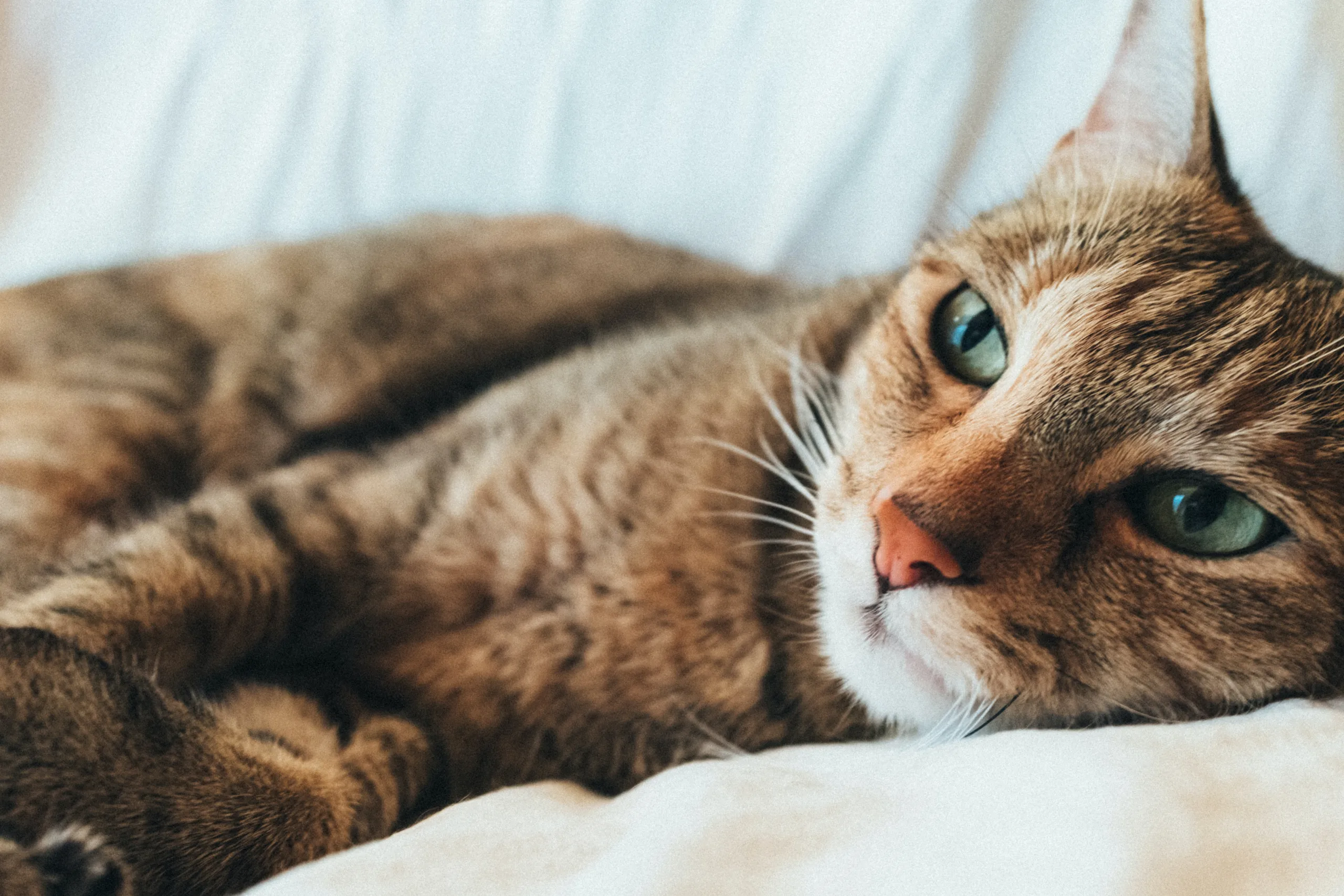Why is My Cats Lip Swollen? As a cat owner, observing any changes in your feline friend’s appearance can be concerning. One such change that might catch your attention is a swollen lip. While a swollen lip in cats can be alarming, it’s essential to approach the situation with a calm and informed perspective. In this article, we’ll explore the potential causes of a cat’s swollen lip, when to be concerned, and steps you can take to address this issue and ensure your cat’s well-being.
For more about cats click here
Potential Causes of Swollen Lips in Cats
1. Allergic Reactions:
Cats, like humans, can experience allergic reactions to various substances. If your cat comes into contact with an allergen, such as certain plants, chemicals, or insect bites, their lip may become swollen. Allergic reactions can occur suddenly and result in localized swelling.
2. Insect Bites or Stings:
Insects, such as bees or wasps, can bite or sting a cat’s lip, leading to localized swelling and discomfort. In some cases, an allergic reaction to the insect’s venom may also contribute to the swelling.
3. Trauma or Injury:
Accidental trauma, such as a bite, scratch, or impact, can cause swelling in a cat’s lip. Cats are curious creatures, and minor injuries from exploring their environment can lead to inflammation.
4. Dental Issues:
Dental problems, such as periodontal disease or an abscess, can lead to swelling in the mouth, including the lips. Inflammation can result from infection or irritation related to dental health.
5. Infections:
Bacterial, viral, or fungal infections can cause swelling in various areas of a cat’s body, including the lips. These infections may require medical treatment to address the underlying cause.
6. Oral Ulcers:
Ulcers or sores in the mouth, often caused by conditions like stomatitis or calicivirus, can lead to swelling and discomfort in the lips.
7. Oral Tumors:
While less common, tumors or growths in the oral cavity can lead to localized swelling, including the lips.
When to Be Concerned
While a swollen lip may be a minor issue caused by a temporary irritation, it’s crucial to monitor your cat’s overall health and behavior. If the swelling persists, worsens, or is accompanied by other concerning symptoms, it’s time to seek veterinary care. Signs to watch for include:
- Difficulty Eating or Drinking: Swelling that affects your cat’s ability to eat or drink should be addressed promptly.
- Excessive Drooling: If your cat is drooling excessively or showing signs of discomfort, it’s important to consult a veterinarian.
- Behavioral Changes: A swollen lip accompanied by changes in behavior, such as lethargy or avoiding social interactions, could indicate an underlying issue.
- Persistent Swelling: Swelling that doesn’t improve within a day or two may require medical attention to determine the cause and appropriate treatment.
Treating a Cat’s Swollen Lip
If your cat’s swollen lip appears to be mild and there are no other concerning symptoms, you can try the following steps at home:
- Clean the Area: Gently clean the affected area with a mild, pet-safe antiseptic solution to prevent infection.
- Monitor for Improvement: Keep a close eye on your cat’s swelling. If it doesn’t improve within a day or two, contact your veterinarian.
- Provide Comfort: Ensure your cat has a comfortable and stress-free environment to aid in the healing process.
- Offer Soft Food: If your cat’s swollen lip is affecting their ability to eat, offer soft or wet food that requires less chewing.
- Avoid Irritants: Keep potential irritants, such as plants or chemicals, out of your cat’s reach to prevent further reactions.
Seeking Veterinary Care
If your cat’s swollen lip is severe, doesn’t improve, or is accompanied by other concerning symptoms, it’s essential to consult a veterinarian. A veterinarian can perform a thorough examination, diagnose the underlying cause, and recommend appropriate treatment. Treatment options may include medication, antibiotics, pain relief, or dental care, depending on the cause of the swelling.
FAQs on Why is My Cats Lip Swollen?
Q1: Should I be worried if my cat’s lip is swollen? While a swollen lip can sometimes be a minor issue, persistent or severe swelling, especially when accompanied by other symptoms, should be a cause for concern.
Q2: Why would a cat’s lip swell? Swelling in a cat’s lip can be caused by various factors, including allergic reactions, insect bites, trauma, dental issues, infections, oral ulcers, and tumors.
Q3: How do you treat a cat’s swollen lip? Treating a cat’s swollen lip may involve cleaning the area, monitoring for improvement, providing comfort, offering soft food, and seeking veterinary care if needed.
Q4: How long does it take for a cat’s swollen lip to go away? The duration for a cat’s swollen lip to resolve depends on the underlying cause. If the swelling persists or worsens, consult a veterinarian.
Q5: Will my cat’s swollen lip go away on its own? In some cases, minor swelling may resolve on its own. However, persistent or severe swelling should be evaluated by a veterinarian.
Seeking Professional Guidance
A veterinarian is the best resource for evaluating and treating your cat’s swollen lip. If you’re uncertain about the cause or severity of the swelling, it’s always recommended to consult a veterinary professional. Your cat’s health and well-being are a priority, and with proper care and attention, you can ensure their swift recovery and continued happiness.
Click here for more
